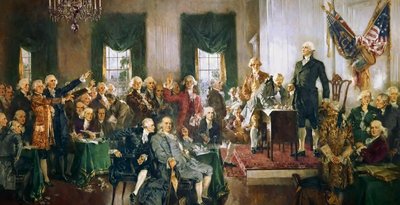SUMMARY
As 2024 election campaigns pick up steam, Meta announced this week that it would start labeling AI-generated images posted on Facebook, Instagram and Threads. In December, an advocacy group said Meta, YouTube and X have rolled back 17 policies intended to protect against hate speech and misinformation. John Yang speaks with Katie Harbath, former Facebook public policy director, to learn more.
View the transcript of the story.
News alternative: Check out recent segments from the NewsHour, and choose the story you’re most interested in watching. You can make a Google doc copy of discussion questions that work for any of the stories here.
WARM UP QUESTIONS
- What new policy AI content was recently announced by Meta (the parent company of Facebook and Instagram)?
- Who is Katie Harbath, and what is her background?
- How vulnerable is the 2024 election cycle to online misinformation, according to Harbath?
- Why might the challenges of misinformation and disinformation be different in 2024 than previous elections?
- Where are some other key elections around the world set to take place in 2024, and how are social media companies addressing concerns in those countries?
FOCUS QUESTIONS
- What do you think is the most important step social media companies can take to combat misinformation around elections?
- According to this story, many social media companies are more transparent about plans around U.S. elections than elections in other countries. Why do you think this is? What are some consequences of less action being taken in other countries?
Media literacy: In this interview, host John Yang asks if "self-regulation" (that is, social media companies making their own rules rather than the government) would be enough to combat misinformation. Where could you go to find out what ideas have been proposed or enacted by state and federal government to regulate social media?
Alternative: See, Think, Wonder: What did you notice? What did the story make you think? What would you want to find out more about?
FOR MORE
What students can do: How can you learn to better distinguish factual information from intentional disinformation on social media? Watch the video below from the MediaWise Teen Fact-Checking Network and discuss — what special challenges does AI present in determining whether social media content is good information or not?
Teachers: You can find full lesson plans on navigating misinformation in this collection of media literacy lessons!
Fill out this form to share your thoughts on Classroom’s resources. Sign up for NewsHour Classroom’s ready-to-go Daily News Lessons delivered to your inbox each week.




